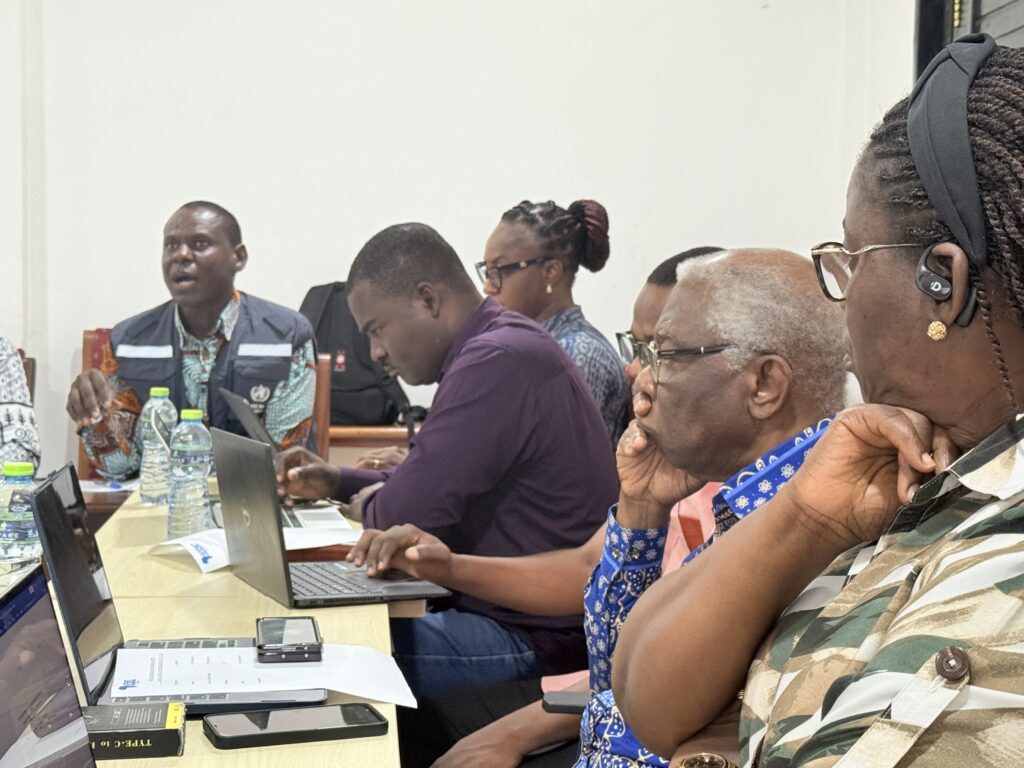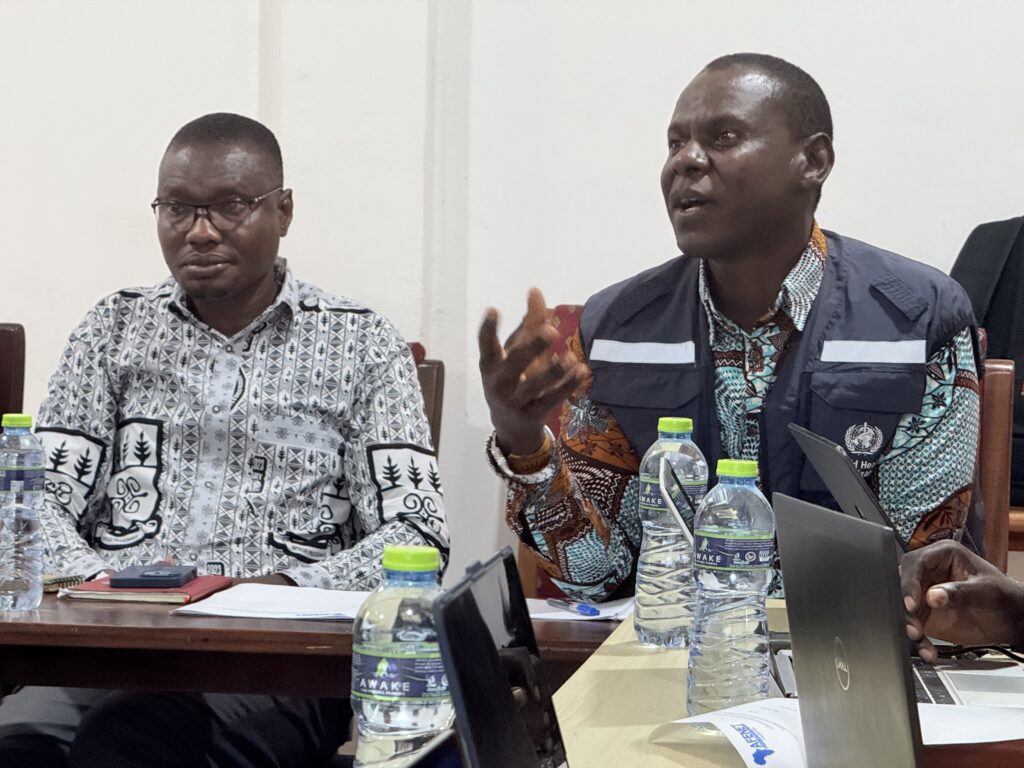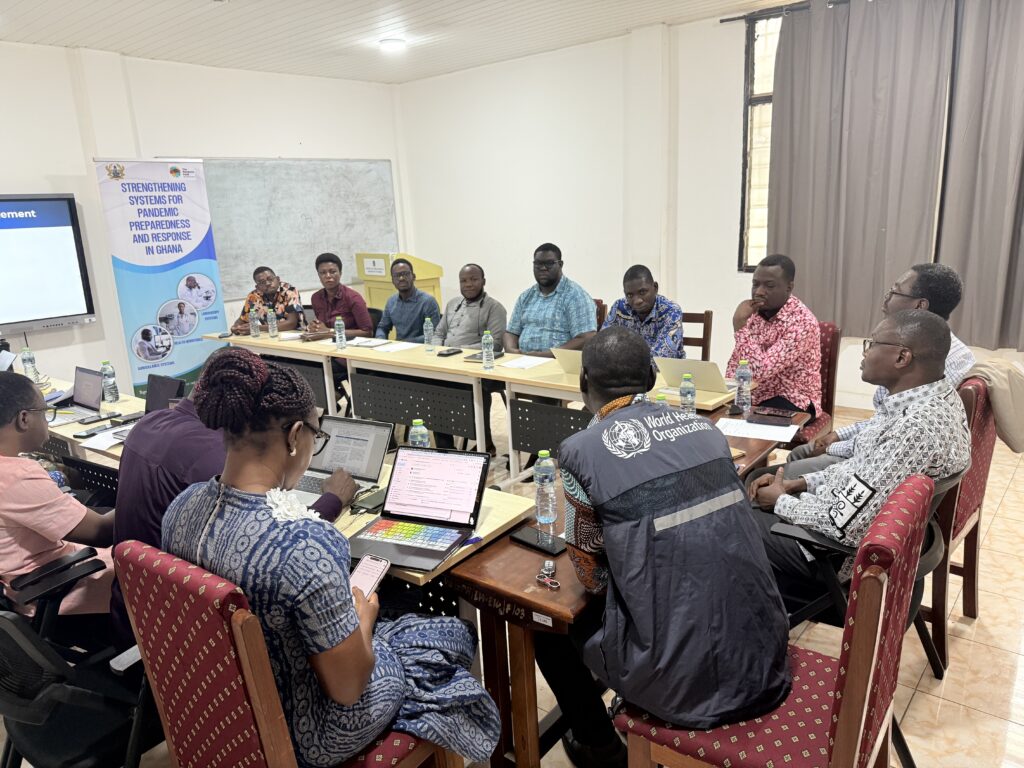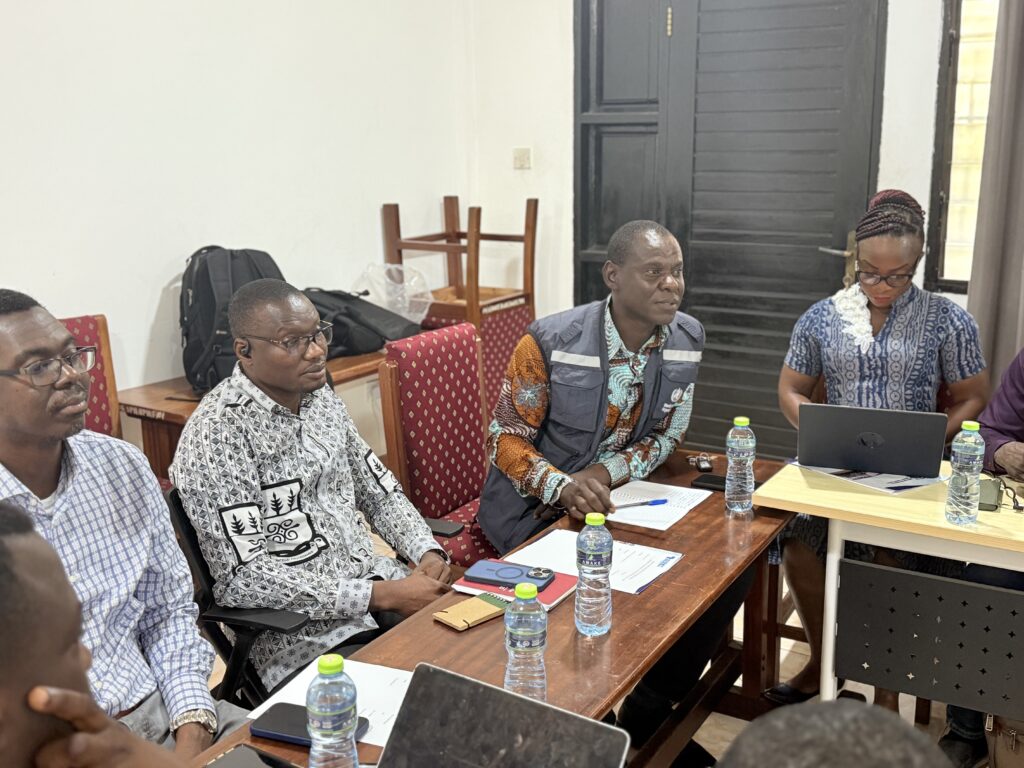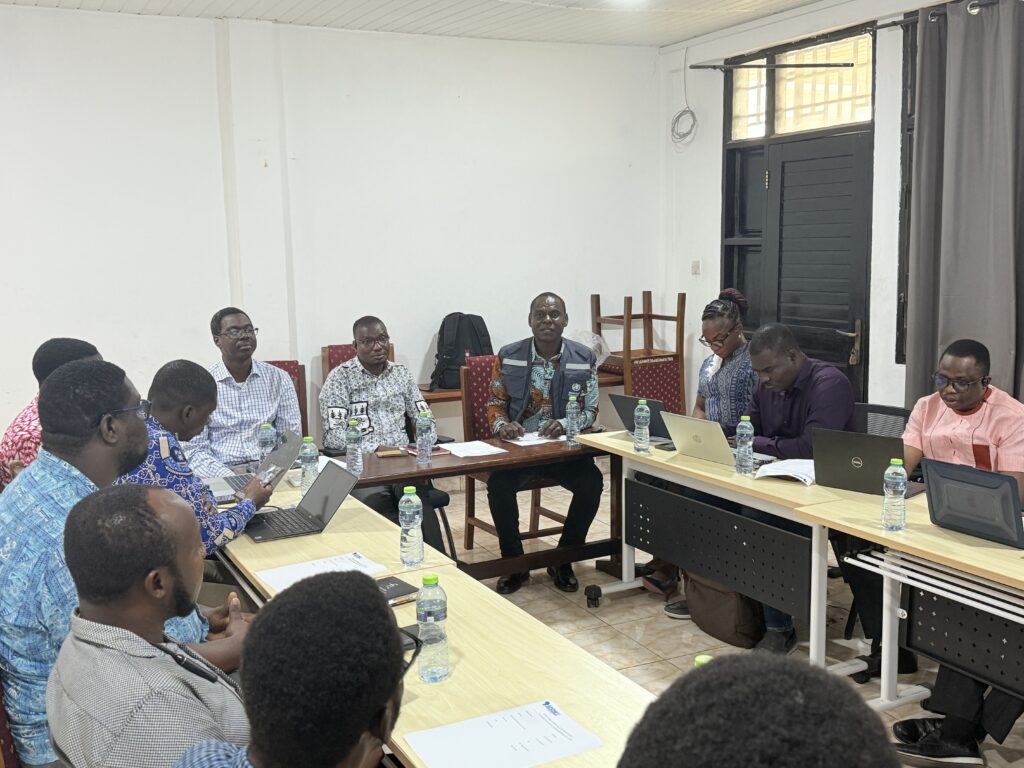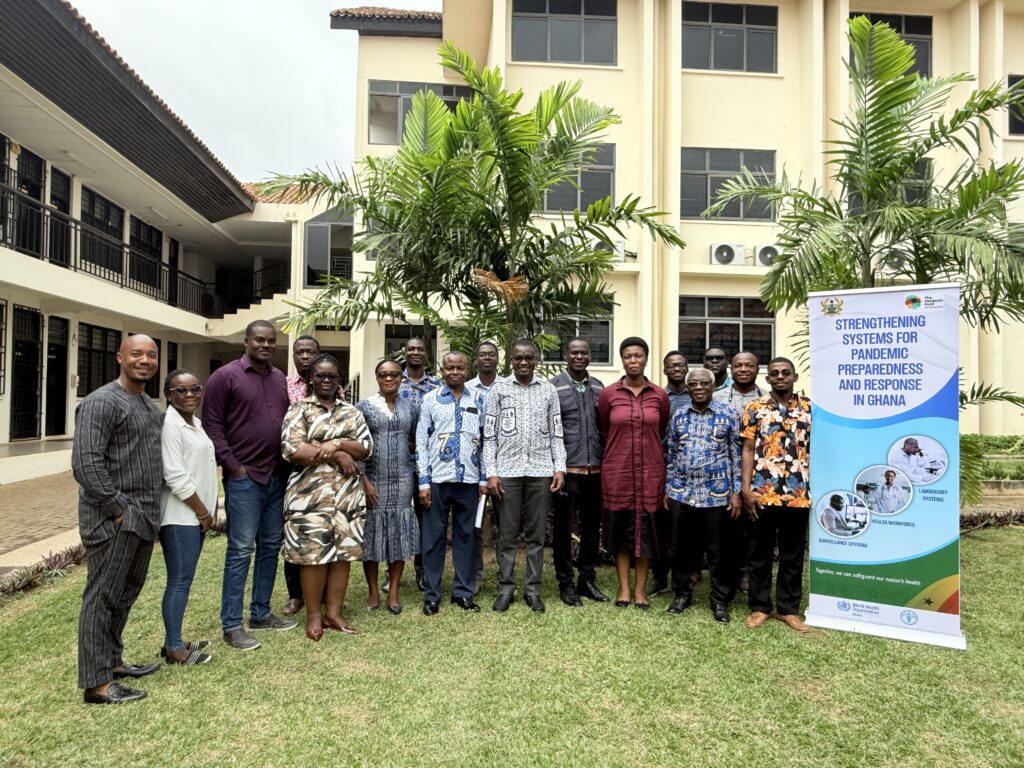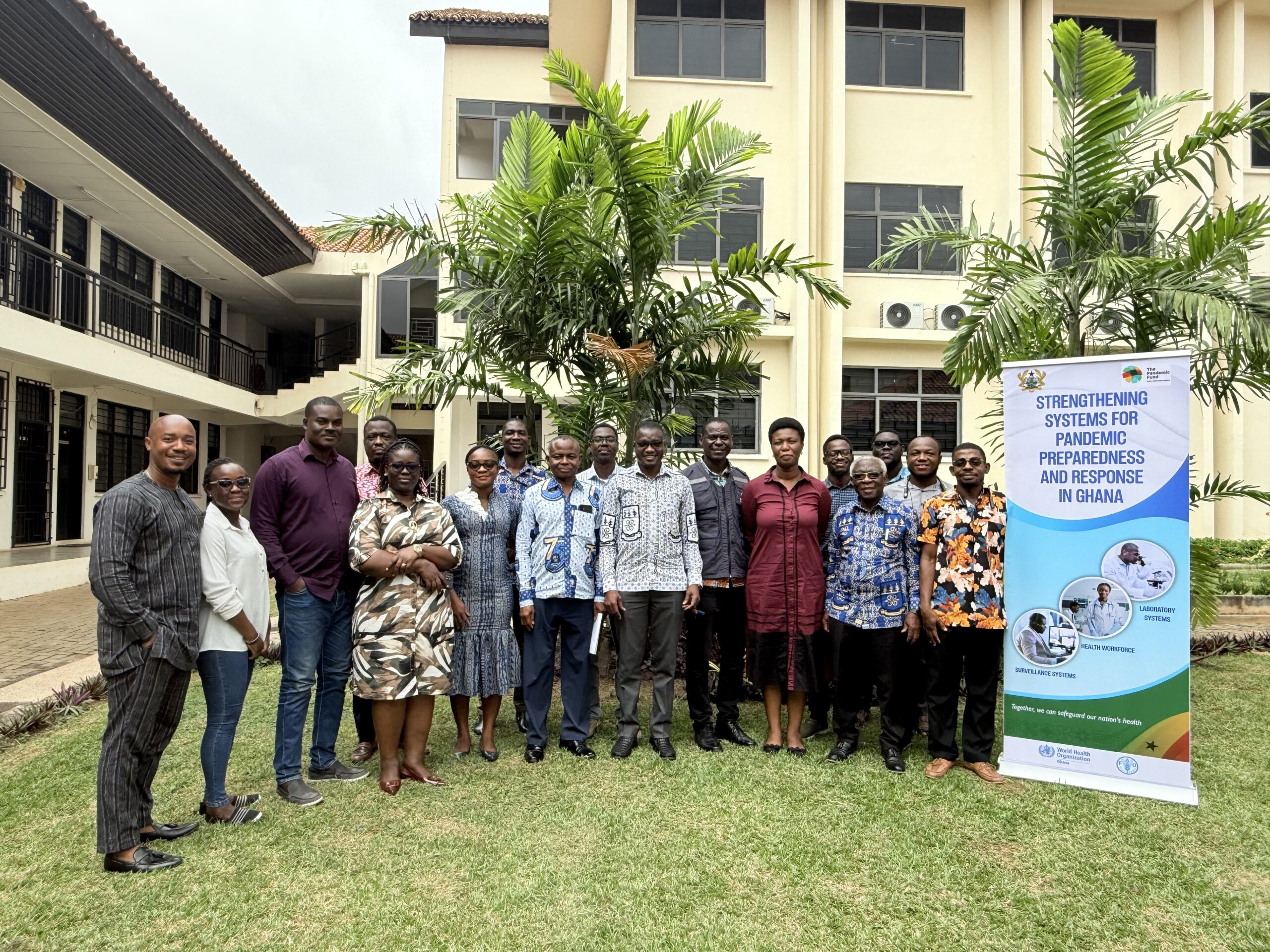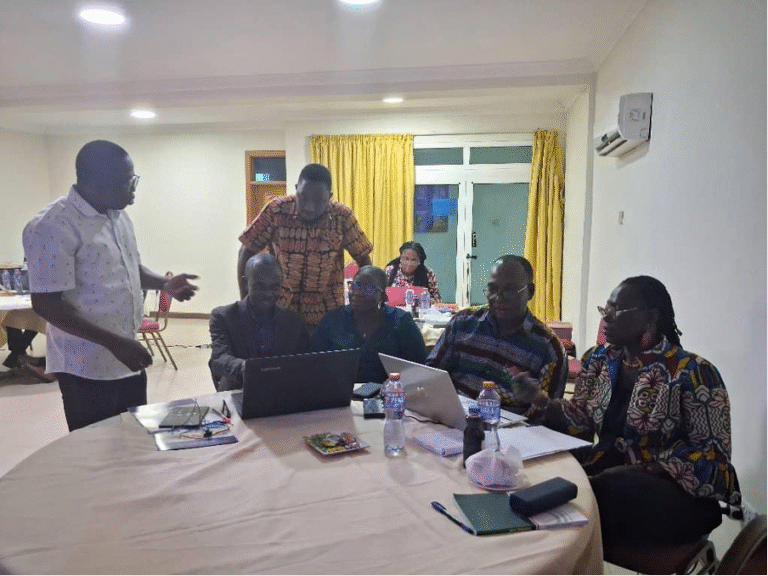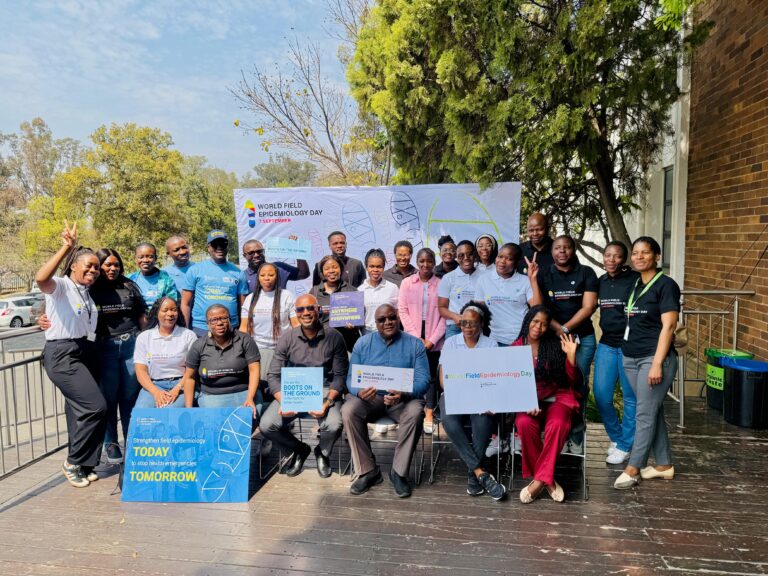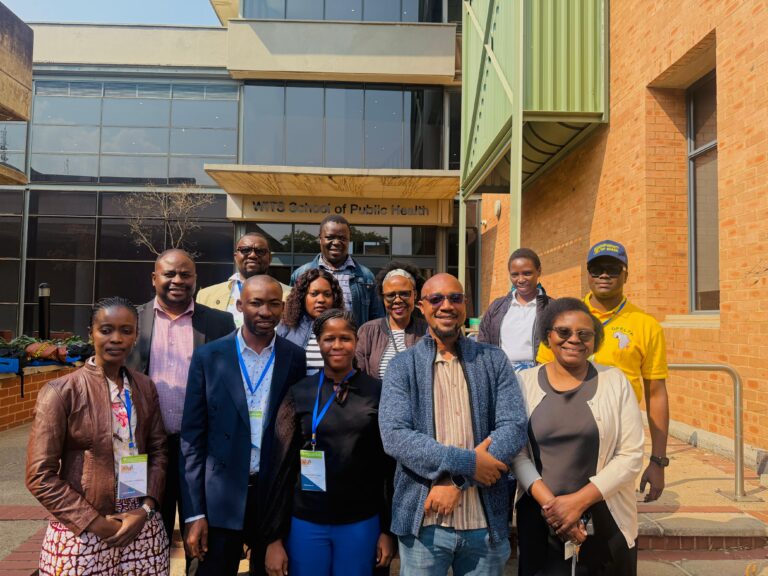WHO supports FELTP Residents through the pandemic fund project
As part of the strategies to advance workforce capacity for early detection and response to public health emergencies in Ghana, the World Health Organisation (WHO) is supporting the training of five FELTP advanced residents through the Pandemic Fund project. To officially kick off this initiative, an inception meeting was held on July 11, 2025, between AFENET Ghana, WHO, the University of Ghana and the five selected Advanced residents. This meeting aimed to discuss the project scope, objectives and expected deliverables. It was also to seek commitment for a mutually beneficial project outcome.
In his opening remarks, Prof. Ernest Kenu, Director of AFENET Ghana, expressed his gratitude to the WHO for its support in strengthening Ghana’s workforce capacity. He emphasised AFENET’s commitment to equipping trainees with the essential field epidemiological skills to contribute to the country’s health security.
To the trainees, Prof. Kenu’s advice was to endeavour to incorporate the knowledge gained from their training into their expected outputs and their field of work. He stated that this training positions them to be included in the SURGE response plan for deployment during emergencies. He further indicated that this support contributes to the surge preparedness plan and is expected to improve Ghana’s performance in future Joint External Evaluations.
He emphasised that, as part of WHO’s quality control measures, their outputs and reports would be subject to routine assessment. As such, efforts should be made to produce quality results. Prof. Kenu also mentioned that additional mentors will be assigned to them from the WHO, the Ghana Health Service, and the faculty to guide them in producing the expected quality output on time.
Dr. Joseph Asamoah Frimpong, the Resident Advisor of the Ghana FELTP, highlighted the scope and objectives of the project, as well as the details of funding support and expectations.
Mr. Christopher Tamal, the Activity Manager from WHO, reiterated that the expertise gained from the training must be evident in their way of working and the guidance they provide in promoting health security and emergency preparedness in their various organisations. These, he emphasised, must be evident in the post-training evaluations. He also mentioned that their training is a contribution to the workforce implementation strategy.
